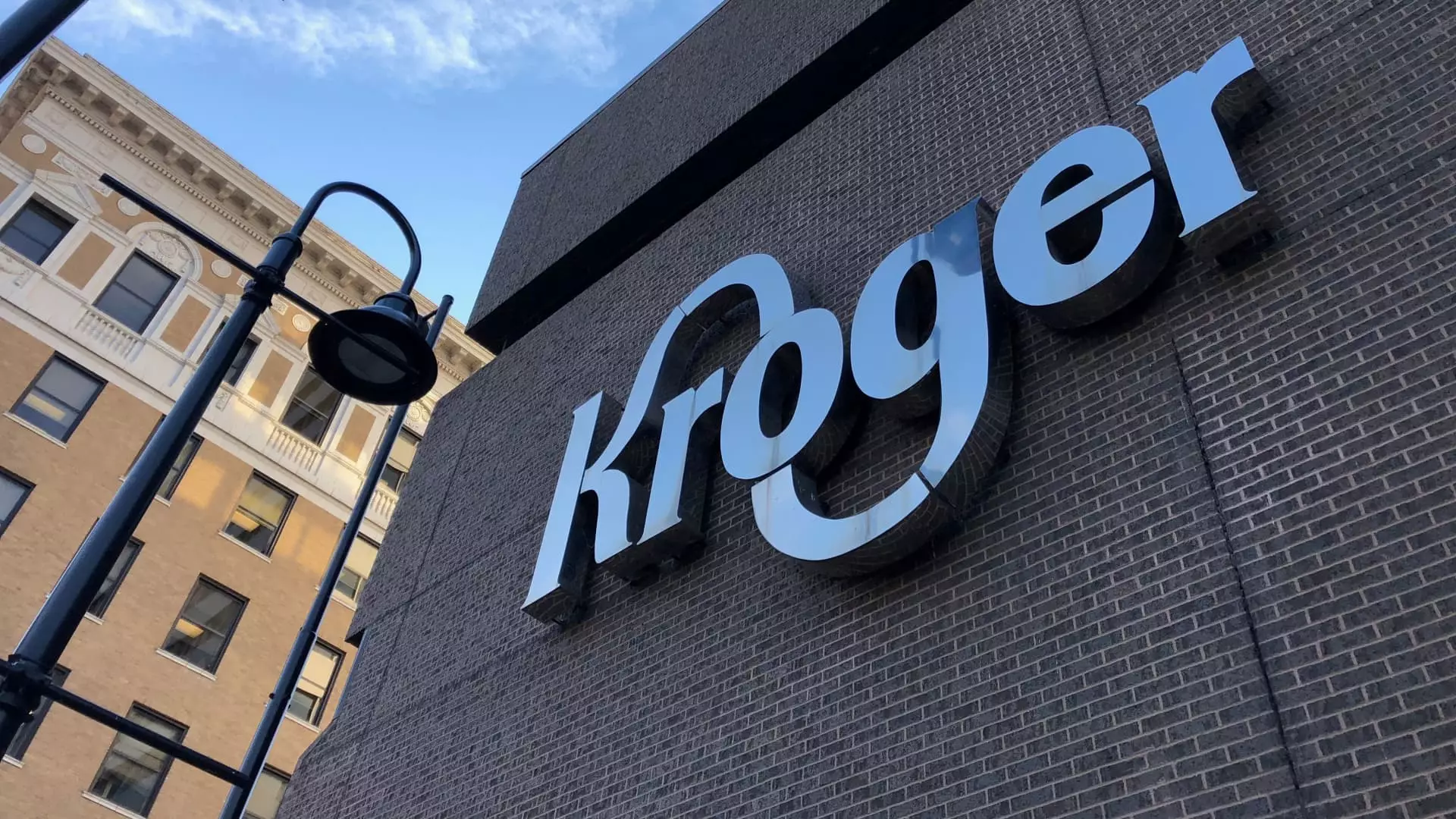Kroger, one of the largest retail pharmacy chains in the United States, announced on Friday that it has agreed to pay $1.2 billion to U.S. states, local governments, and Native American tribes to resolve claims that it contributed to the opioid epidemic through its lax oversight of pill sales. This settlement follows similar agreements made by other retail pharmacy chains such as Walgreens, CVS, and Walmart.
While Kroger’s settlement marks a significant step towards resolving the ongoing litigation, the company clarified that it is not an admission of wrongdoing or liability. Kroger remains committed to vigorously defending itself against any additional claims and lawsuits that are not addressed in the final agreement.
Under the terms of the settlement, Kroger will pay $1.2 billion to U.S. states and local governments over the course of 11 years. Additionally, Native American tribes will receive $36 million. The company recorded a net loss for the second quarter due to a $1.4 billion charge relating to the settlement and associated legal fees.
The opioid epidemic has had devastating consequences, with over 564,000 deaths involving opioids reported between 1999 and 2020, according to the Centers for Disease Control and Prevention. Initially, many of these deaths were associated with prescription drugs. In response, various stakeholders, including governments, doctors, and companies, took measures to make prescription drugs more difficult to abuse. However, this led to a shift in behavior, with individuals with opioid use disorder turning to heroin, which proved to be even more lethal.
Kroger is not the only retail pharmacy chain to settle claims related to the opioid epidemic. In November, Walgreens agreed to pay $4.95 billion to U.S. states, local governments, and tribes to resolve all opioid-related claims. Additionally, Walgreens reached a separate agreement with West Virginia for $83 million in January. CVS also settled for a hefty sum, agreeing to pay $5 billion to various entities to resolve opioid-related lawsuits. Similar to Walgreens, CVS also settled with West Virginia, paying $82.5 million. Walmart finalized a $3.1 billion nationwide settlement agreement with all U.S. states and local governments, with West Virginia receiving $65 million in a separate agreement. Rite Aid, on the other hand, has not reached a nationwide settlement but did agree to pay $30 million to West Virginia. The company is reportedly considering filing for bankruptcy to restructure its debt and potentially halt any ongoing opioid lawsuits.
Despite Kroger’s settlement, the opioid crisis is far from over. The resolution of these lawsuits against pharmacy chains and companies is an important step towards holding accountable those who played a role in fueling the epidemic. The financial settlements also provide a means of compensating affected communities and supporting initiatives aimed at preventing future opioid-related harm.
While the settlements help address past wrongs, it is crucial now more than ever to focus on preventing future cases of opioid addiction and addressing the ongoing impact of the epidemic. This includes implementing stricter regulations on prescription drug distribution, improving access to addiction treatment and recovery programs, and raising awareness about the dangers of opioid misuse.
The opioid epidemic is a complex issue that requires collective responsibility from various stakeholders, including healthcare providers, pharmaceutical companies, regulators, and individuals. By working together, we can develop effective strategies to combat the crisis, support affected communities, and prevent future generations from falling victim to the devastating effects of opioid addiction.


Leave a Reply